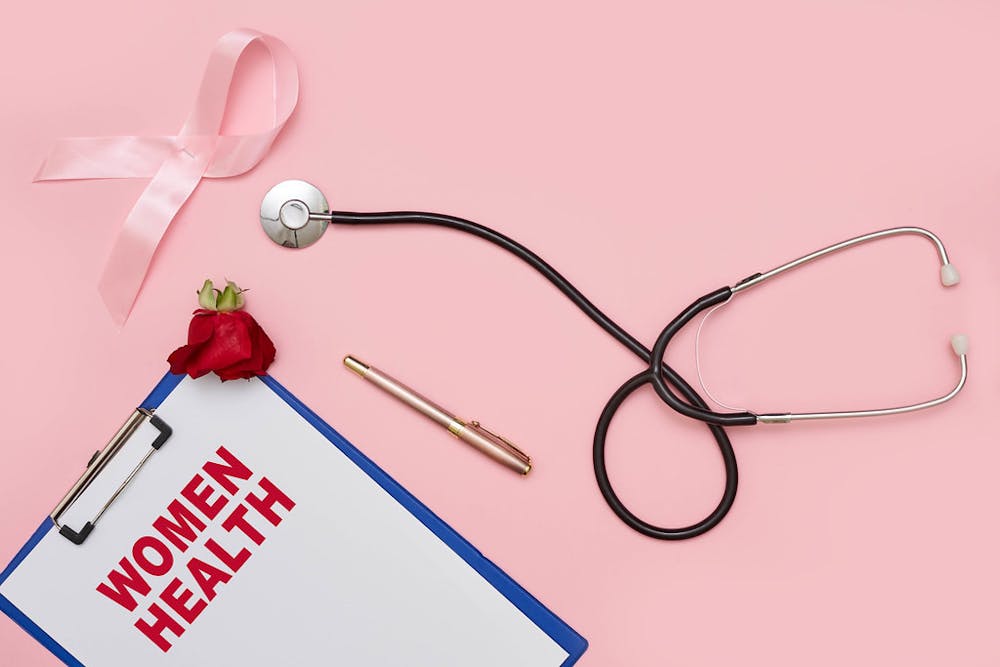The new Center for Global Women’s Health and Gender Equity (GWHGE) — directed by Dr. Michele Decker, ScD, MPH at the School of Public Health’s Department of Population, Family and Reproductive Health — aims to mitigate existing gender inequities. The center is guided by the United Nations’ Sustainable Development Goal (SDG) number five and targets multiple issues, from lack of equal representation of all global health communities in leadership and policymaking to mitigating the impacts of gender-based violence through evidence-based research methods.
Achieving the gender equality ambitions of the United Nations’ SDGs requires evidence-based systems to measure gender equity data and implement policies that transform or mitigate existing gender inequities. However, funding has not matched the global interest in this effort. Financing for the collection and measurement of gender data decreased by 55% in 2020, an amount that was triple the drop in funding for overall data and statistics across all fields of research. Only 48% of the data required to measure progress towards UN SDG 5 were currently available as of 2022.
To that end, Dr. Decker identified one of the biggest issues in gender equity research to be the translation of existing data and evidence at a global scale, which would make evidence-based research methods accessible and useful for professionals and gender equity experts across the field. The center aims to work toward this goal by improving the efficacy of indicators used to measure gender inequity’s impacts and helping global health communities use these metrics more effectively in policymaking.
“Part of our work as a center is translating some of those lessons learned with policy. Practitioners help people in [communities] feel more knowledgeable about metrics and [feel] better about using them,” Decker explained.
Existing studies that identify key gender inequities lack data and research from low- and middle-income countries (LMICs). Stemming from this, the Center for GWGHE has also identified the lack of diverse leaders — both in policymaking and academia — in the fight against existing gender inequities. Scholars and experts from the very communities facing threats to women’s health and gender equity are underrepresented in gender-equity-focused research and policymaking groups.
“One of the biggest gaps we see is the translation with the metrics, [deciding] what are the best metrics to use, getting the metrics into the hands of [underrepresented] communities… talking to people in the policy space…” Decker argued.
To mitigate these issues, the center has spearheaded the Gender Equity/Gender-Based Violence (GBV) Evidence Accelerator Fellowship, a cohort program for professionals involved in gender equity work, particularly in low- and middle-income settings.
The center is further working toward its goal to translate gender equity indicators to diverse cultures by working with experts from across the globe. The center leads data roundtables in multiple global health communities, working with community leaders in gender equity research and aiming to address cultural and societal differences in the causes and impacts of gender inequities. One such recent effort, in collaboration with Kenyatta University Women’s Economic Empowerment Hub and ICRH Kenya, helped generate new reports focusing on the experience of GBV survivors in Nairobi, Kenya.
“[Local community experts] are coming in with the evidence base and it’s not resonating because there’s something else big going on that isn’t being considered [by current indicators]... These are the conversations we need to have so we can get these systems and metrics aligned with what [local communities] need,” Decker argued, highlighting the importance of these roundtable discussions.
The center’s current focuses include expanding these data circles — such as the aforementioned project in Kenya and the Monitoring and Action for Gender Equity (MAGE) Project, directed by Dr. Rosemary Morgan, PhD, MSc, an Associate Research Professor at the School of Public Health’s Department of International Health. MAGE is a partnership between Hopkins and the Global Financing Facility for Women, Children and Adolescents that aims to increase the availability of gender equity data and strengthen gender and equity-intentional monitoring and evaluation.
Dr. Decker and Jessica-Schmidt Bonifant, Executive Manager and Development Director at the Center for GWHGE, emphasized how the center is a university-wide effort, fostering collaboration between multiple branches of Hopkins to mitigate gender inequities through applied research, training and translational efforts globally.
“The center is a cross-divisional effort… Our lens on this is that it really takes a community and a lot of different disciplinary approaches to bring these issues forward,” Decker said.





